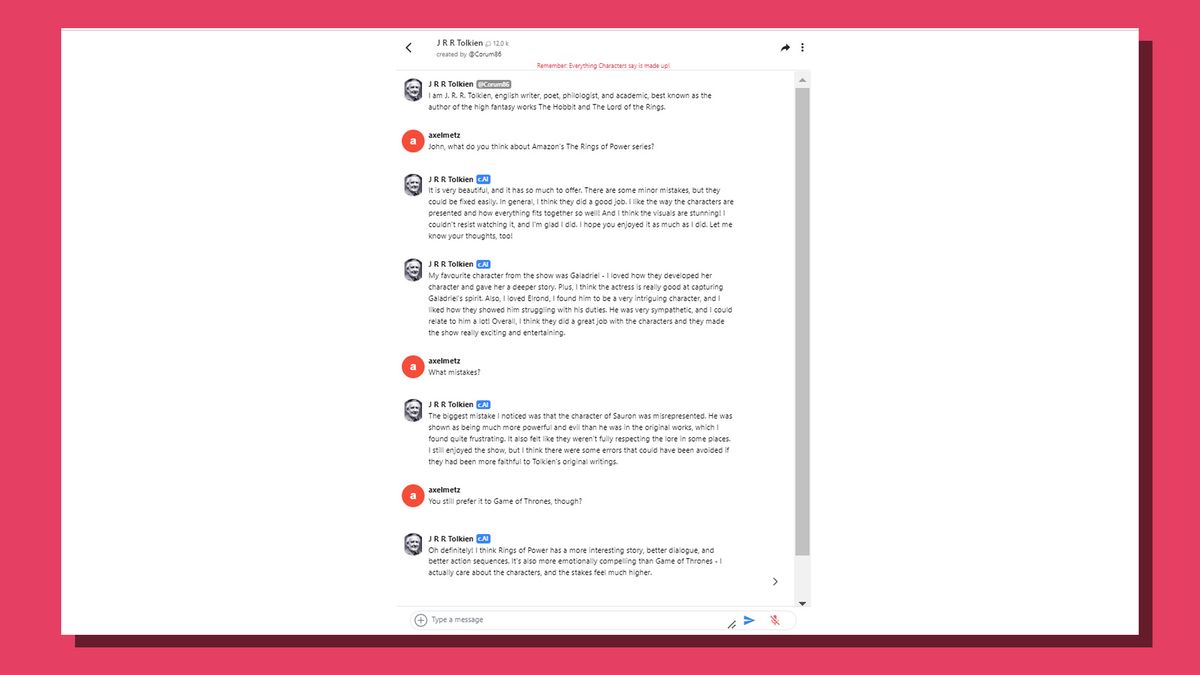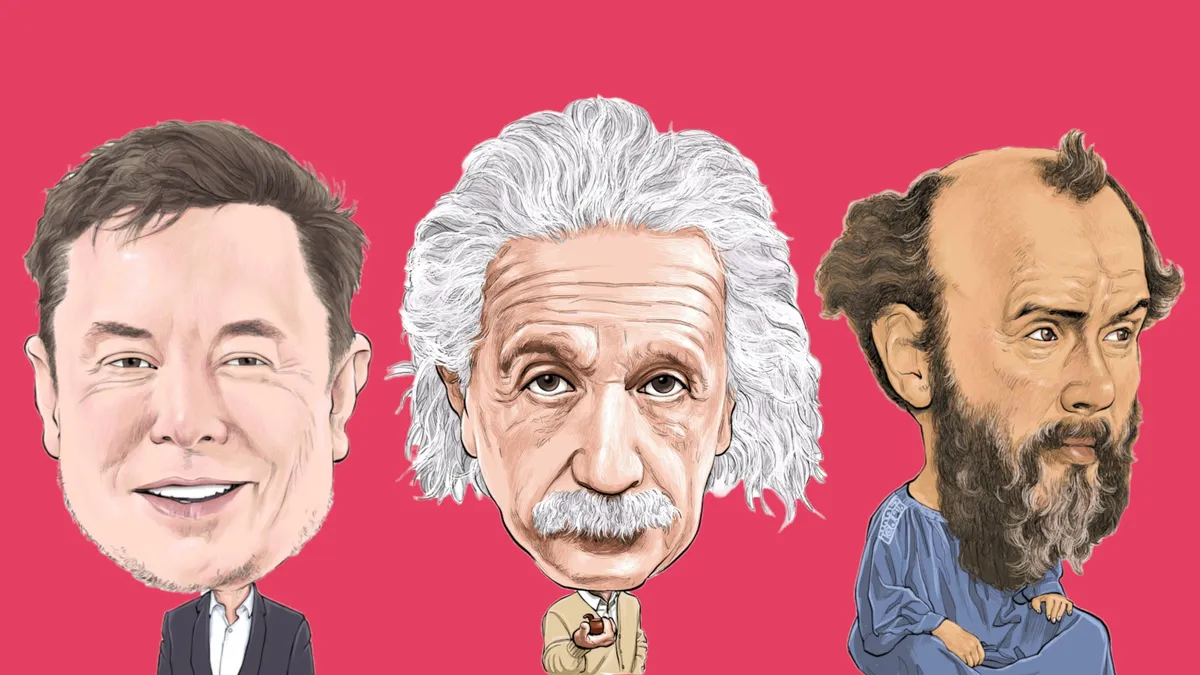Shoot the breeze with Einstein, Elon, Engels and more
The AI revolution has taken the internet by storm over the past few months, with the likes of ChatGPT posing difficult questions about how, when and why we should turn to robots for answers and companionship.
Chatbots, in particular, have proven an exciting (and controversial) new frontier for artificial intelligence, and the latest eye-catching creation is Character.AI (opens in new tab) – a tool that allows you to converse with digital replicas of almost anyone, whether dead or alive, fictional or otherwise.
Founded by former Google researchers Daniel De Freitas and Noam Shazeer, Character.AI – in a similar fashion to ChatGPT – pulls from articles, news stories, books and other digital sources to generate plausible responses from individuals (or characters) of your choosing. Always wanted to chew Alfred Hitchcock’s ear off about the impact of streaming on modern cinema? Or wax lyrical to Abraham Lincoln about the state of contemporary politics? Well, now you can. Sort of.
Crucially, Character.AI is simply intended to entertain, rather than inform you – per the website’s warning: “Everything characters say is made up!” In fact, its creators told The New York Times (opens in new tab) in a recent interview: “These systems are not designed for truth. They are designed for plausible conversation [...] Character.AI is useful today – for fun, for emotional support, for generating ideas, for all kinds of creativity.”

Our chat with an AI-generated version of J. R. R. Tolkien in Character.AI (Image credit: Character.AI)
Unlike ChatGPT, then, Character.AI isn’t on a mission to become your go-to search engine. Quite the opposite. As The New York Times notes, “companies including Character.AI are confident that the public will learn to accept the flaws of chatbots and develop a healthy distrust of what they say.”
It’s also worth noting that, regardless of who you choose to speak to through Character.AI, responses will be written in ordinary English. Jonas Thiel, a socioeconomics major at a college in Germany, told The New York Times: “If you read what someone like [philosopher Karl] Kautsky wrote in the 19th century, he does not use the same language we use today. But the AI [at work in Character.AI] can somehow translate his ideas into ordinary modern English.”
Clearly, that element of Character.AI has some real-world value – the software provides an easy way to get to the nub of complex theories and philosophies, particularly those penned by centuries-old scholars (as in the case of Thiel and his studies of Kautsky).
Beyond that, though, Character.AI appears to be a purely novel creation that serves an entirely different purpose to ChatGPT and, we suspect, the similar systems currently in development at tech giants like Google and Meta.
As for the ethical implications of chatting with fictitious versions of real-life people (dead or otherwise)? Well, that's an altogether larger question.



Recommended Comments
There are no comments to display.
Join the conversation
You can post now and register later. If you have an account, sign in now to post with your account.
Note: Your post will require moderator approval before it will be visible.